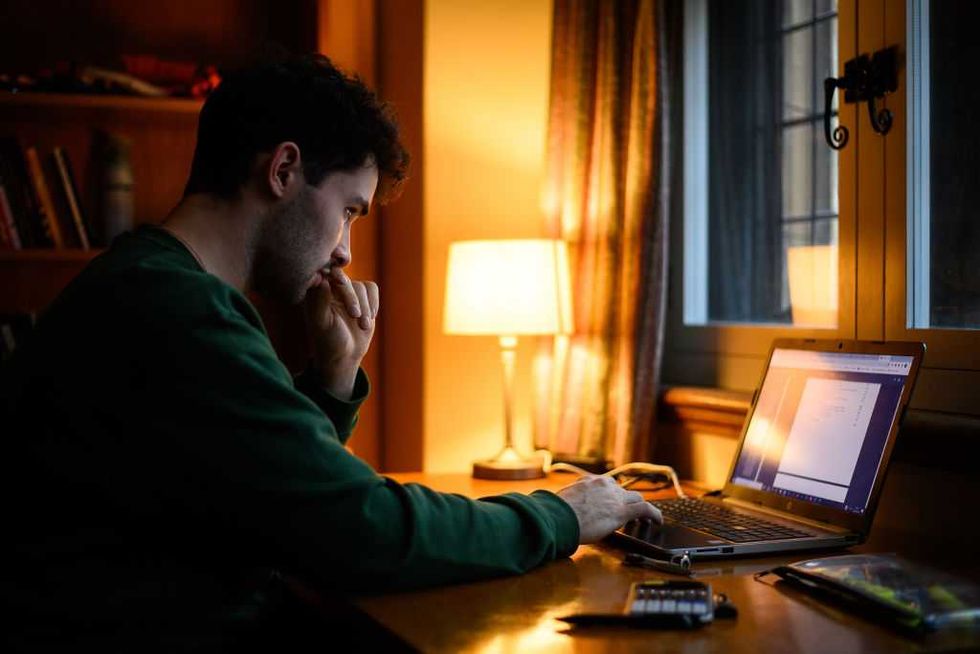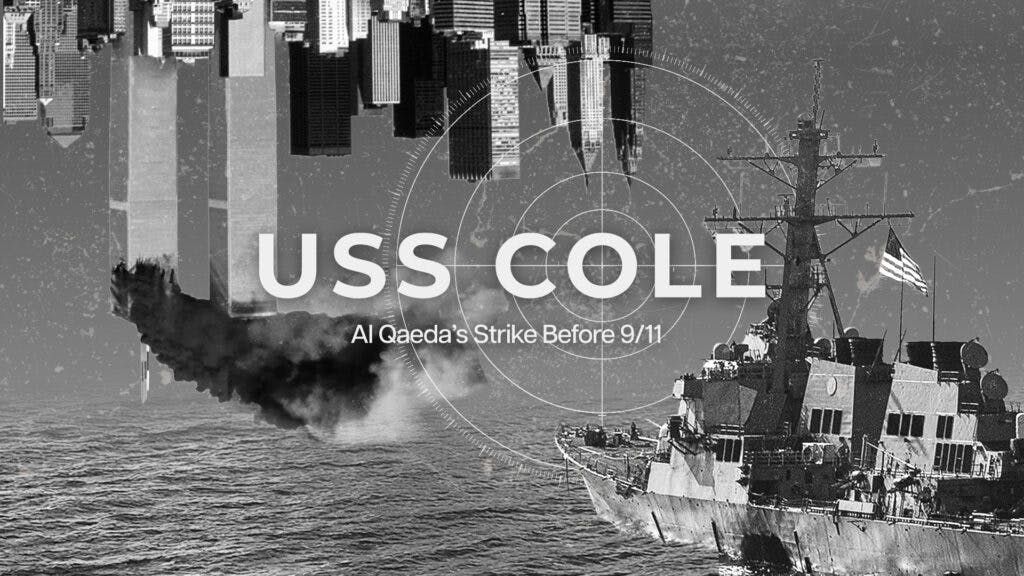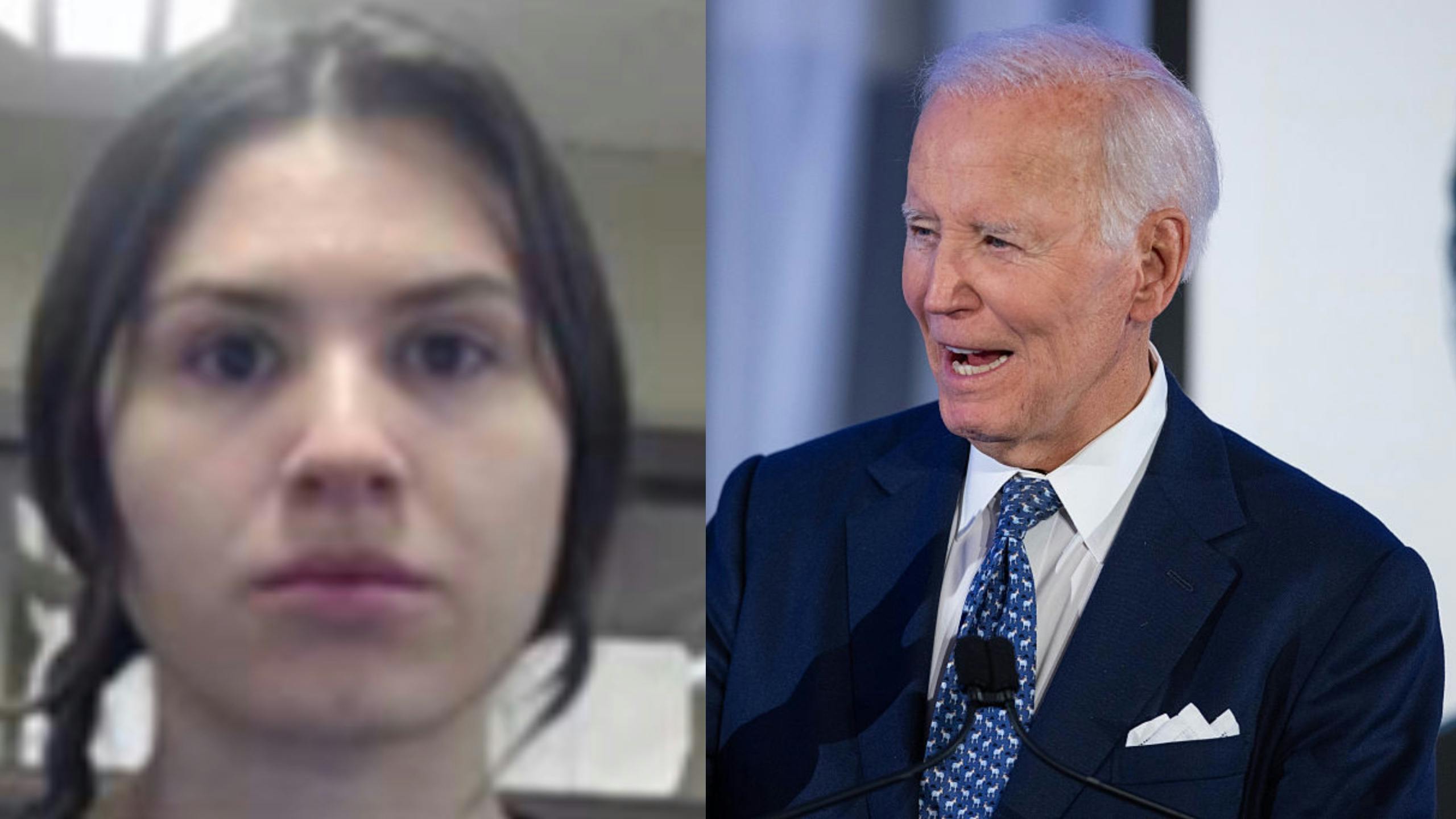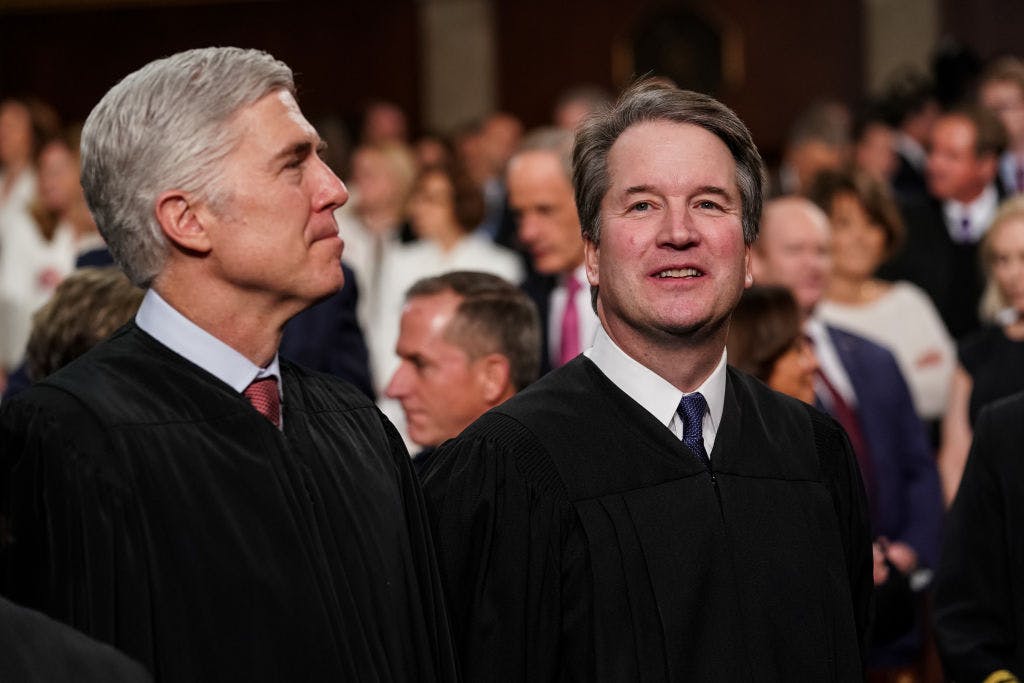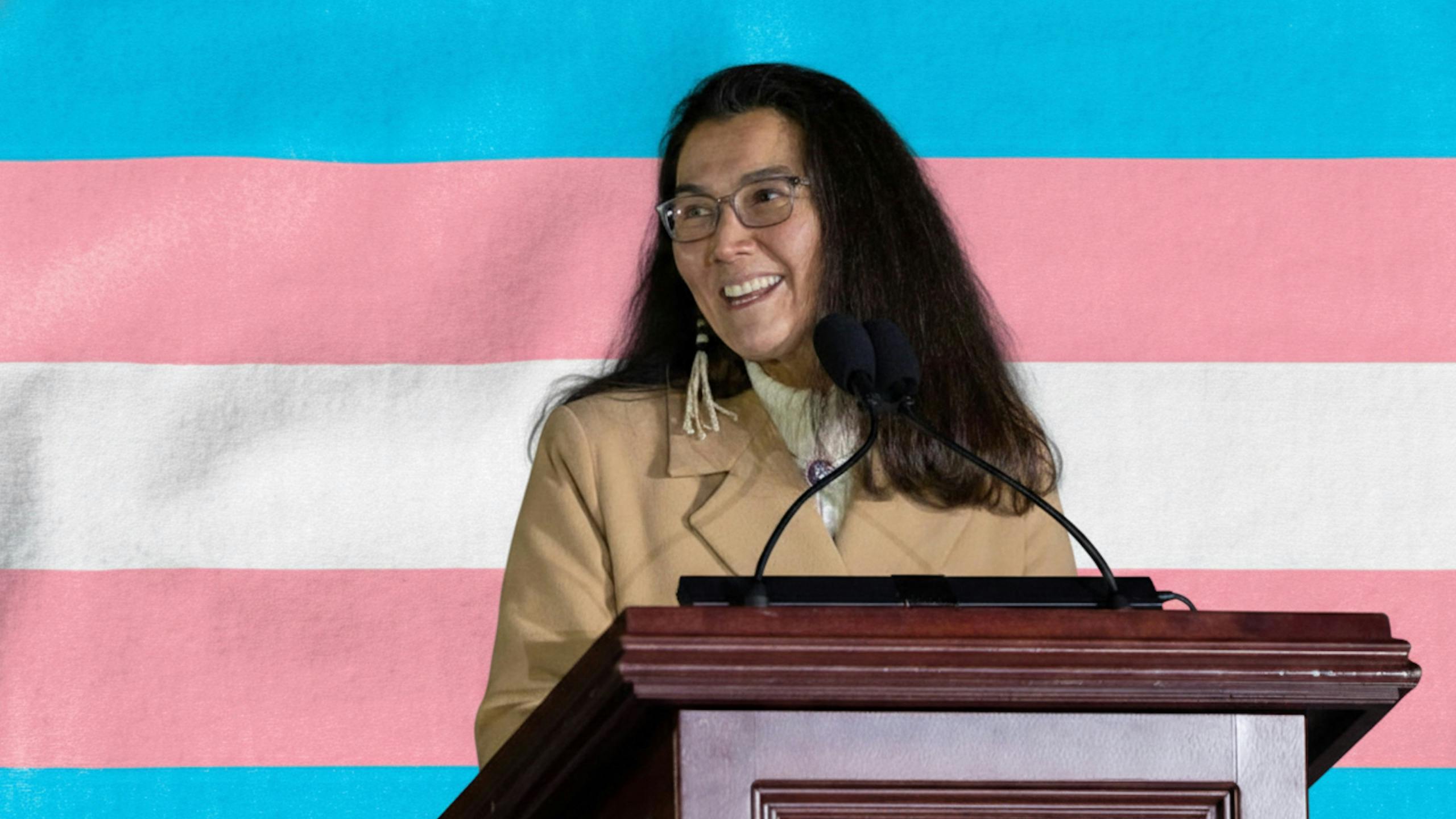Before 9/11, There Was The USS Cole: New Documentary Recounts A Defining Attack
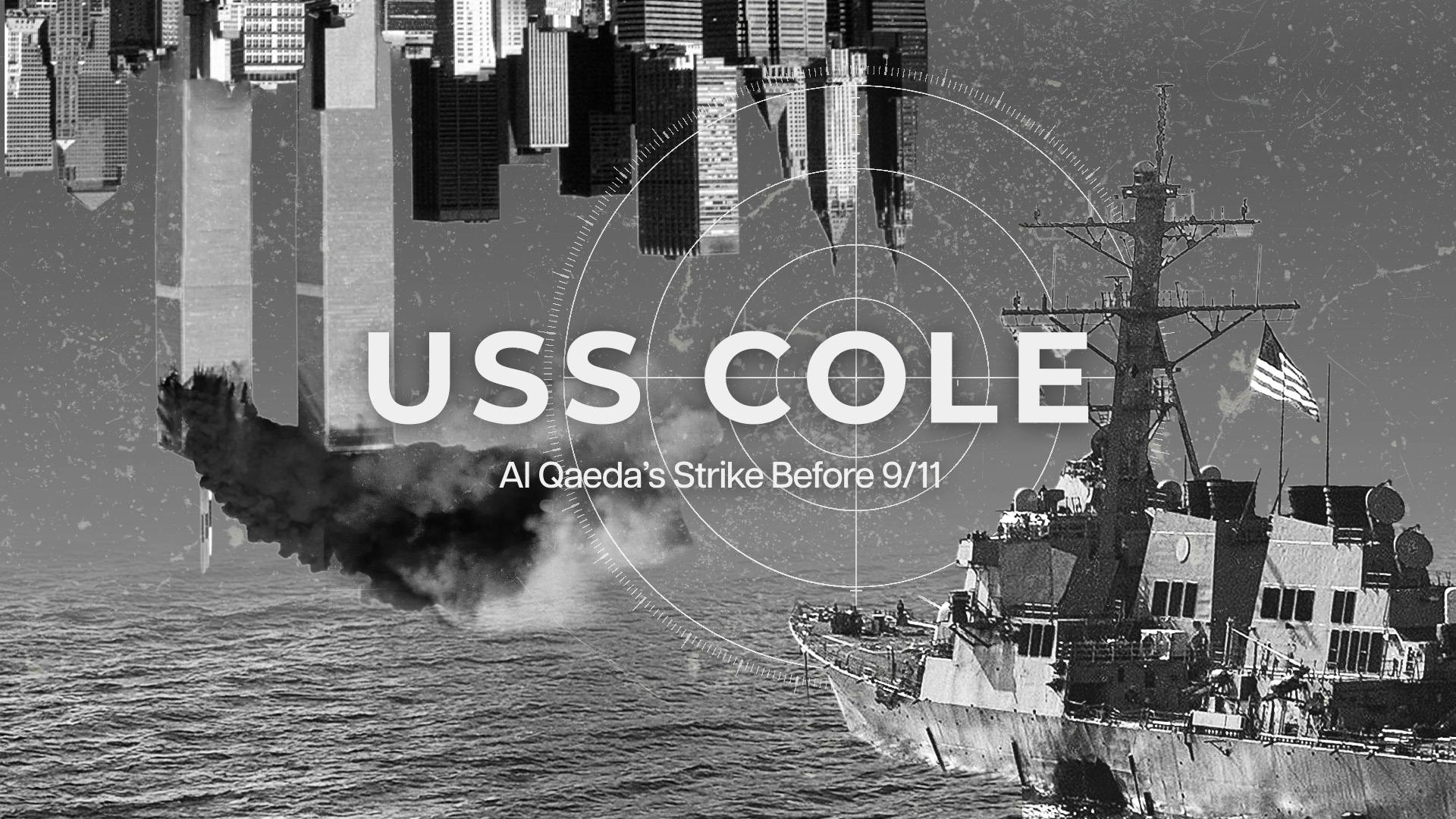
It has been 24 years since the deadly attacks on the U.S. that unleashed a decade-long war against Al-Qaeda and the hunt for its leader. Those who fought that war and participated in that hunt should be remembered and honored for it.
Live Your Best Retirement
Fun • Funds • Fitness • Freedom
I had the privilege to play a small role in the endgame of that search as we delivered justice to the killer of so many innocents. It is also good to commemorate the Americans who fell in battles with Al Qaeda before we acknowledged that we were, in fact, at war with that terrorist organization. Those pre-9/11 clashes included the 1993 attack on the World Trade Center and the 1998 bombings of the American Embassies in Kenya and Tanzania.
It was the Al Qaeda assault on the USS Cole in 2000, however, that is seen as a precursor to September 11, 2001.
In 1779, when a British officer demanded the surrender of the USS Bonhomme Richard, John Paul Jones — founder of the American Navy — famously retorted, “I have not yet begun to fight.” That retort has been the credo of American sailors ever since. And it epitomized the reaction of every crew member aboard the USS Cole to the attack on their ship.
Now, 25 years after the surprise attack, Big Media and DailyWire+ bring you “USS Cole: Al Qaeda’s Strike Before 9/11.” The three-part documentary captures the crew’s courage, professionalism, and sacrifice during and after the assault on their ship.
The documentary also provides insights into the efforts of the skipper of the USS Cole, Commander Kirk S. Lippold, and other military professionals, who navigate the limitations placed on their abilities to respond to terror threats in the pre-9/11 era, which are at once fascinating and deeply unsettling. Finally, the show documents the comprehensive investigation and relentless pursuit of the perpetrators in the wake of the attack.
The Al Qaeda attack on the Cole occurred on October 12, 2000. The U.S. Navy destroyer was making a routine refueling stop at the Port of Aden, Yemen, when a small boat carrying concealed explosives approached the port side of the ship. The two men on board made friendly gestures to sailors on the Cole, and then detonated their lethal cargo. The resulting blast tore a 40-foot-wide hole in the hull near the galley, at a time when many crew members were lining up for lunch. The explosion killed 17 personnel on the ship and injured 40 others. Al Qaeda claimed responsibility for the attack, which had been coordinated by operatives who had trained in Afghanistan.
As shown in the Big Media production, the crew of the Cole responded to the attack with extraordinary bravery and professionalism, working to triage injured shipmates and to deal with the extensive damage to the vessel. Within minutes of the explosion, medical personnel were rescuing, treating, and evacuating the wounded, many of whom were trapped under collapsed bulkheads. Sailors, a number of whom were badly injured themselves, fought flooding and fires for more than 96 hours, working without adequate sleep or food, often in total darkness and with the threat of further explosions. They did this despite the loss of key leaders, demonstrating great technical skill and courage in extremely hazardous conditions. With the assistance of nearby British Royal Navy ships and medical aid from the French military, the crew members saved the lives of injured shipmates and kept their ship from sinking. Later transported back to the U.S. for repair, the Cole remains in service with the Navy today.
“USS Cole: Al Qaeda’s Strike Before 9/11” also recounts the FBI investigation into the attack on the Cole. The Bureau dispatched more than 100 agents, lab technicians, and counterterrorism personnel to Yemen. Working with local authorities, FBI officers conducted witness interviews and collected evidence that resulted in a determination that Al Qaeda was, indeed, responsible for the Cole attack. In fact, it was tied to an abortive attempt to bomb another Navy ship, the USS The Sullivans, in January 2000. By the end of 2000, two men suspected of masterminding the bombing were arrested. Both subsequently escaped from Yemeni jails but were later killed in separate American airstrikes.
Another planner of the attack, captured in 2002, was shipped to Guantanamo Bay, where he was charged with responsibility for the Cole bombing and other terror-related offenses. Additional investigations and prosecutions identified numerous unindicted Al Qaeda co-conspirators. U.S. authorities have continuously pursued the remaining suspects.
The lessons learned from the ordeal of the USS Cole and the investigations resulted in significant changes to U.S. Navy force protection protocols and U.S. counterterrorism policy. The documentary raises a key question over whether one of the key factors that contributed to the successful terrorist bombing of the Cole — and to the 9/11 attack — was that we were paying attention to things that distracted us from the threat.
Before the first plane struck the World Trade Center, we, as a nation, had not yet begun to fight. But the men and women of the USS Cole already had. And it is right that we should honor and remember them for it. In its portrayal of their courage, heroism, and sacrifice, the Big Media telling of their story does just that.
* * *
Mark Kelton is the former CIA Chief of Counterintelligence.
The views expressed in this piece are those of the author and do not necessarily represent those of The Daily Wire.
Get 40% off new DailyWire+ annual memberships with code FALL40 at checkout!
Originally Published at Daily Wire, Daily Signal, or The Blaze
What's Your Reaction?
 Like
0
Like
0
 Dislike
0
Dislike
0
 Love
0
Love
0
 Funny
0
Funny
0
 Angry
0
Angry
0
 Sad
0
Sad
0
 Wow
0
Wow
0




